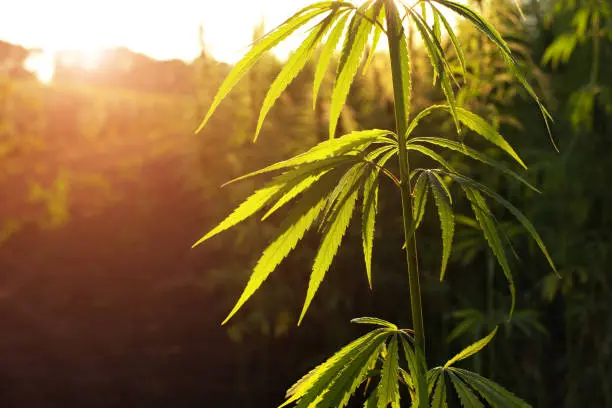
How Is CBD Legal?
You’ve probably seen CBD oils for sale online or in local stores and wondered how that’s possible, since CBD is technically still a Schedule I controlled substance. The answer lies in the law: while both hemp and cannabis are the same species (Cannabis Sativa L.), they are governed by different regulations.
“Legal” CBD is a byproduct of industrial hemp processing. CBD from lawful industrial hemp is legal if it is grown in a state where hemp cultivation is permitted, or if it is derived from the mature stalk of the marijuana plant or imported non-psychoactive hemp. Ironically, the highly regulated, lab-tested CBD products available in licensed dispensaries are federally illegal, while low-quality CBD extracted from imported hemp byproducts can be marketed as “legal in all 50 states.”
Hemp vs. Cannabis: Key Differences
Here’s a quick comparison between cannabis (grown for medicine) and hemp (grown for fiber/industrial use):
| Category | Cannabis (over 1.5% THC) | Industrial Hemp (under 0.3% THC) |
|---|---|---|
| Purpose | Grown for medicine under strict state rules | Grown for fiber and bulk CBD extraction |
| Growing Standards | State-regulated cultivation | Often imported, less oversight |
| Processing & Testing | Carefully processed, rigorously tested for cannabinoids, contaminants, and mold | Minimal testing, supplement rules only |
| Cannabinoid Content | Rich mix of THC, CBD, CBN, CBG, CBC, THCV, plus terpenes for the entourage effect | Primarily CBD, lacks whole-plant synergy |
| Risk | Safe, lab-verified medicine | Higher contamination risk (bio-accumulator, draws toxins from soil) |
Single Compound vs. Whole Plant CBD
A groundbreaking Israeli study found that isolated CBD has limited usefulness, showing a bell-shaped dose-response curve. This means it only works within a narrow dosage range — too much or too little, and the benefits disappear.
Whole-plant cannabis works differently. The more medicine present, the stronger the therapeutic effect. For conditions like inflammation, CBD-only products cannot compare to the effectiveness of full-spectrum, whole-plant medicine.
Other studies support this, showing that CBD alongside other cannabinoids enhances anti-tumor effects and helps with bladder conditions, effects not seen with isolated CBD.
Ancient Medicine, Modern Science
Scientists will continue isolating compounds to study precise mechanisms, and entrepreneurs will keep exploiting loopholes in conflicting laws. But patients and consumers know the truth: cannabis is more than a single drug. It is a complete pharmacopeia that has evolved alongside humanity for millennia.
We are fortunate to live in a state where safe, regulated cannabis is accessible. Whenever possible, lab-tested whole-plant medicine remains the best choice.
